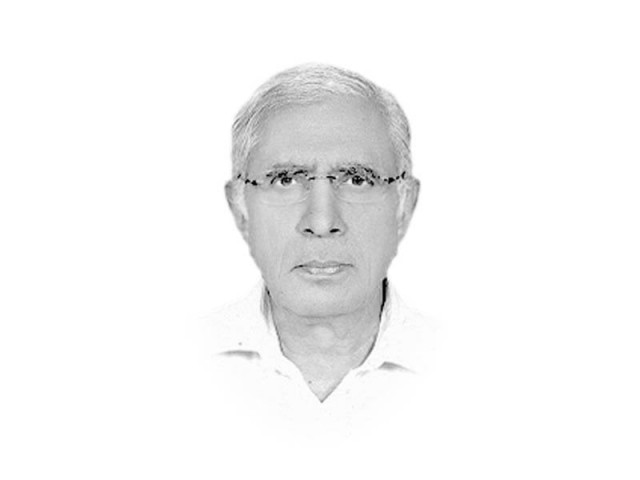Taxing the rich and powerful
Three million people in Pakistan earn more Rs400,000 annually, but only one-fourth actually file returns.

The writer is the Executive Editor of The Express Tribune
Most parliamentarians, even those sitting on the opposition benches, don’t even unbundle the budget books secured tightly into a pack usually by a red or green ribbon and placed on their desks during the short and quick budget debate that normally does not last for more than a couple of weeks. Even if they were to open the budget documents, most perhaps, would not even know how to read them or decipher the budgetary terms, which would perhaps sound more like Greek to them.
That is, perhaps, why most speakers taking part in the budget debate talk about everything under the sun except the budget. And more often than not, most proposals get through unchallenged and the budget gets passed on the due date with little or no change.
But then, perhaps even those officials who prepare the budgetary proposals, one is constrained to assume, lack a clear understanding of the problems being faced by Pakistan on the economic front. That is, perhaps, why the remedies that they propose year after year for resolving these problems fail to show an iota of improvement in the situation, which continues to worsen.
For example, taxing the rich and the powerful is rarely attempted despite the fact that successive budgets have been known to have attempted to be balanced by massive internal and external borrowing, adding to the debt burden, which, in turn, adds to the next year’s amortisation allocations in the budget.
In A Case Study of Pakistan prepared by Dr Hafiz Pasha in connection with ‘Economy of Tomorrow’ movement launched by Friedrich Ebert Stiftung (FES), the author contends that the ultimate litmus test for future tax reforms in Pakistan will be taxing more of the rich and the powerful.
According to Pasha, today, the rich enjoy wide-ranging exemptions and concessions, low effective tax rates and can engage in tax evasion with a degree of impunity, frequently in connivance with the corrupt tax administration. The consequence is low direct tax-to-GDP ratio, which has kept the overall tax-to-GDP ratio at extremely low levels in relation to other countries in the region.
Currently, the direct tax-to-GDP ratio is 3.2 per cent. The figure for the same is 11 per cent in Malaysia, eight per cent in Thailand and six per cent in Turkey, India and Indonesia. Pakistan’s share of direct taxes in total tax revenues is 33 per cent, as compared to between 45-60 per cent in many Asian countries.
Dr Pasha’s study has revealed that only about one-third of the 60,000 companies in operation file returns and among those, less than half declare taxable profits. Also, it is estimated that about three million people in Pakistan earn more than the exempted income of Rs400,000 annually — but only one-fourth actually file returns. In effect, one in 260 people file a return in the country as compared to one in 40 in India.
The tax base for corporate income tax, according to Dr Pasha, is eroded by almost half due to exemptions, deductions against labour and charitable contributions, and lower (presumptive) taxation of exports, etc. While many of these are in the nature of fiscal incentives, they have an implied revenue loss of almost Rs160 billion. Further, the performance of the Federal Board of Revenue in raising demands following company audits is weak. In 2012-13, this was Rs84 billion, showing a gap of 35 per cent in relation to the previous year.
Dr Pasha maintains that the root cause of failure of the taxation system of Pakistan is the very limited taxation of the rich and powerful. In addition, there are over 1,900 statutory regulatory orders (SROs) which create many holes in taxes like GST, customs duty and excise duties. The SROs largely benefit strong pressure groups and lobbies.
Published in The Express Tribune, June 4th, 2014.
Like Opinion & Editorial on Facebook, follow @ETOpEd on Twitter to receive all updates on all our daily pieces.












1724319076-0/Untitled-design-(5)1724319076-0-208x130.webp)


COMMENTS
Comments are moderated and generally will be posted if they are on-topic and not abusive.
For more information, please see our Comments FAQ